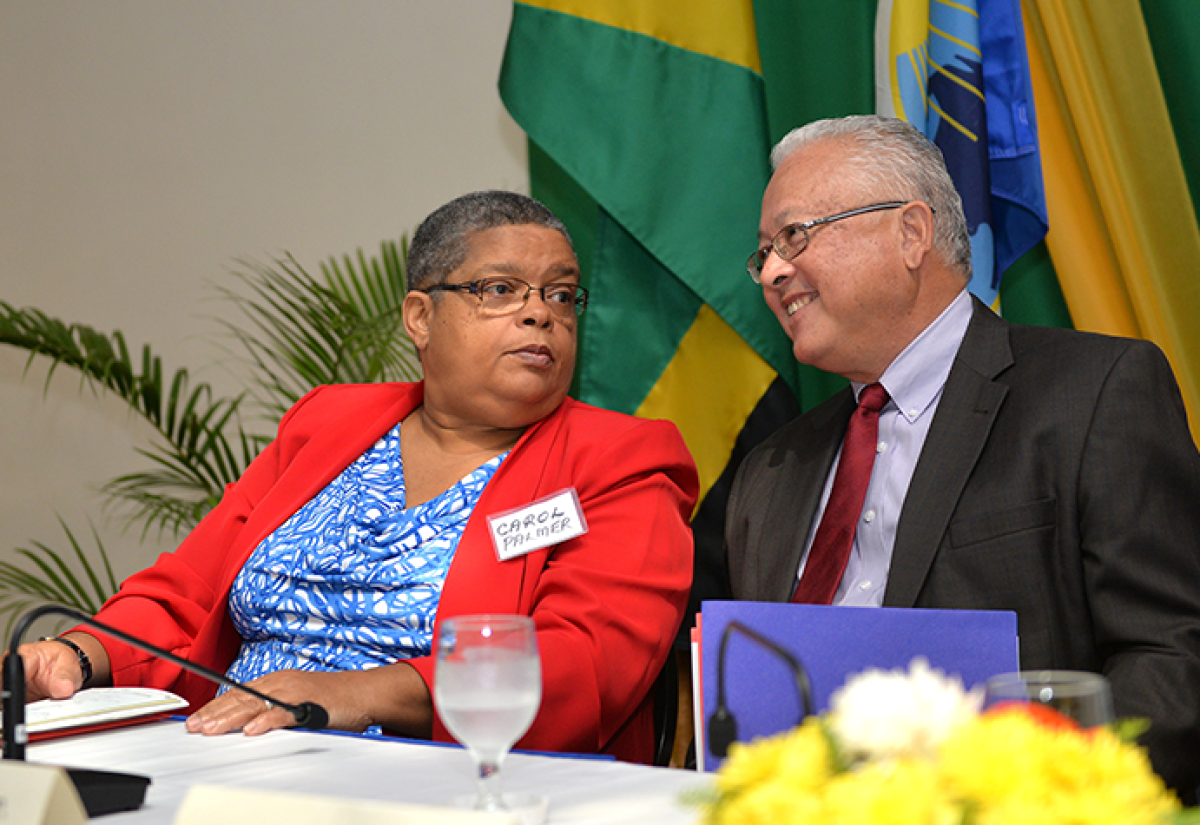Multilateral Partners Praise Restorative Justice Practices
By: , February 11, 2017The Key Point:
The Facts
- Head of Cooperation at the Canadian High Commission in Jamaica, Walter Bernyck; Inter-American Development Bank (IDB) Chief of Operations, Harold Arzu; and United Nations Children’s Fund (UNICEF) Representative in Jamaica, Mark Connolley, have endorsed the measures being undertaken through the Ministry of Justice.
- Restorative justice is a process whereby all the parties with a stake in a particular offence come together to resolve collectively, how to deal with the aftermath of the breach.
The Full Story
Several of Jamaica’s multilateral partners have praised the Government’s ongoing implementation of restorative justice initiatives in reducing crime and violence.
Head of Cooperation at the Canadian High Commission in Jamaica, Walter Bernyck; Inter-American Development Bank (IDB) Chief of Operations, Harold Arzu; and United Nations Children’s Fund (UNICEF) Representative in Jamaica, Mark Connolley, have endorsed the measures being undertaken through the Ministry of Justice.
Restorative justice is a process whereby all the parties with a stake in a particular offence come together to resolve collectively, how to deal with the aftermath of the breach. It focuses on holding the offender accountable in a more meaningful way. It repairs the harm caused by the offence, helps to reintegrate the offender into the community and helps to achieve a sense of healing for both the victim and the community.
Mr. Bernyck noted that restorative justice is an integral part of the Citizen Security and Justice Programme (CSJP), which has benefitted from $20 million in grant funding from the Canadian Government.
He noted that the practice, which focuses on building peace within communities, has been found to reduce repeat offending as well as the cost of criminal justice. This, he said as “not every matter needs to go into the court system.”
Additionally, he said, it provides both victims and offenders with greater satisfaction that justice has been served, and reduces post-traumatic stress symptoms and related costs for victims.
He noted that restorative justice has also proved to be an effective intervention in dealing with youth offenders, by encouraging accountability as well as reducing youth imprisonment.
Mr. Bernyck was speaking at the Ministry’s Eighth International Restorative Justice Conference held at The Jamaica Pegasus hotel in New Kingston on Friday, February 10, under the theme: ‘Building Restorative Communities in Faith Groups, Schools and Workplaces’.
He said the Canadian Government remains committed to working with the Jamaican Government on a “united agenda for change.”
For his part, Mr. Arzu said the IDB acknowledged the Administration’s “enormous” efforts, through the Justice Ministry, to implement a meaningful and evidence-based restorative justice model.
He said the IDB strongly believes in the positive effects of this intervention, noting that rigorous evaluations have demonstrated its significant effects, including “increased satisfaction of the victims with the judicial system.”
Mr. Arzu added that more importantly “these evaluations have also shown a considerable reduction in the likelihood of repeat offences, especially among young offenders.”
“This is of great value to Jamaica considering that it is the young people who are the main perpetrators of violent crimes. Therefore, this initiative offers a very valuable opportunity for the victims, the offenders and the communities to reconcile,” he pointed out.
In his remarks, Mr. Connolley noted that restorative justice presented an opportunity for the law to be administered with “soft hands and a soft touch,” particularly in relation to matters involving children, thereby making Jamaica “a safer place for them.”
“It’s getting things right and I think we are on the right path, here, in Jamaica…because as important as Bills, policies and papers are, it is the people who make the difference,” he pointed out.
For his part, Justice Minister, Hon. Delroy Chuck, said restorative justice is one of the most effective channels to resolve disputes.
He contended that “if we can pull all the different stakeholders in the schools, communities and neighbourhoods to really understand and practise restorative justice, then there is no doubt we would heal many of the problems which confront us.”


